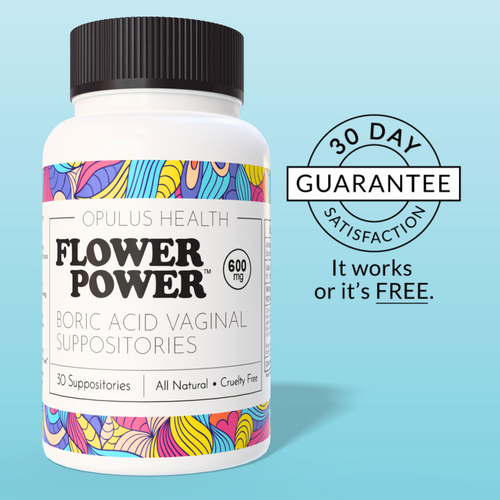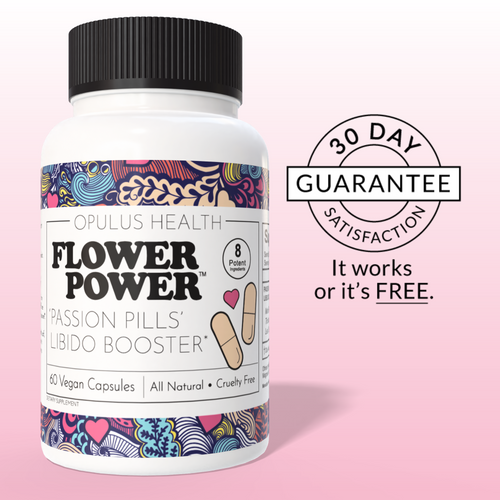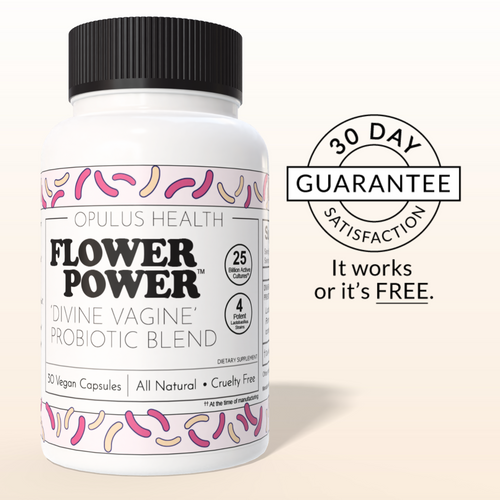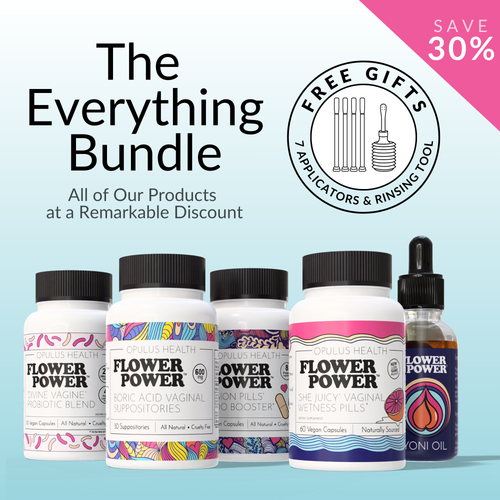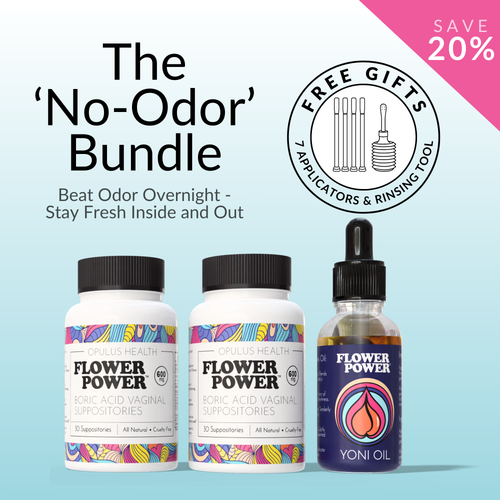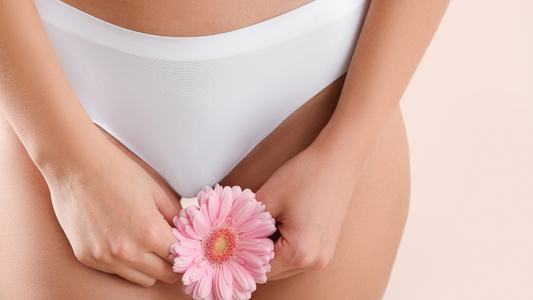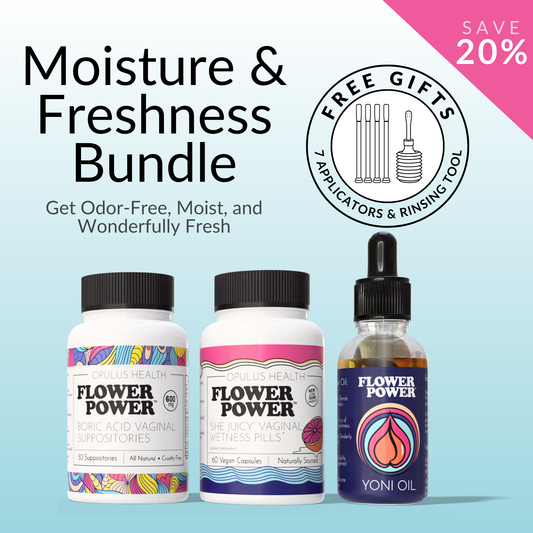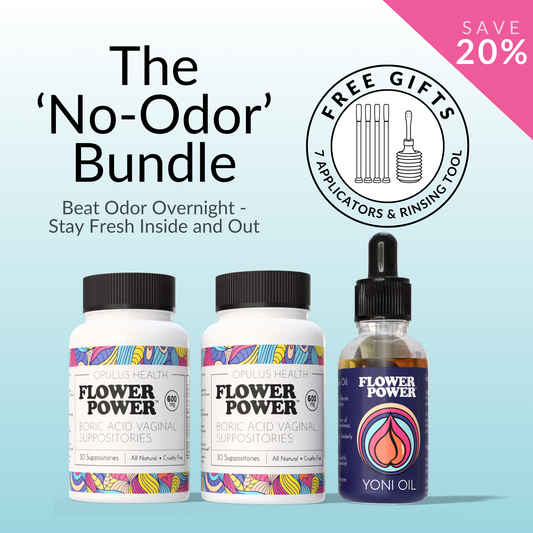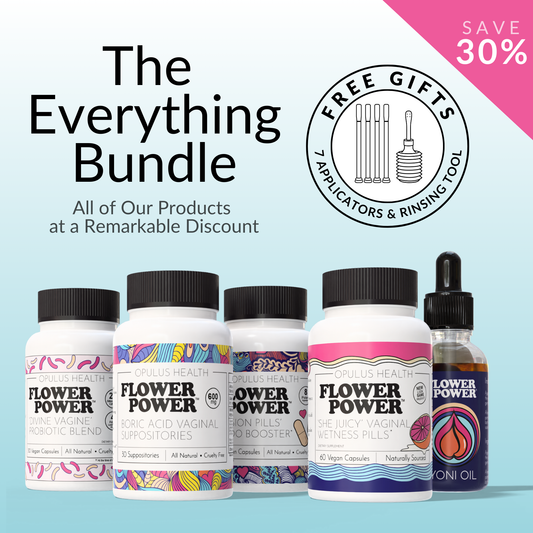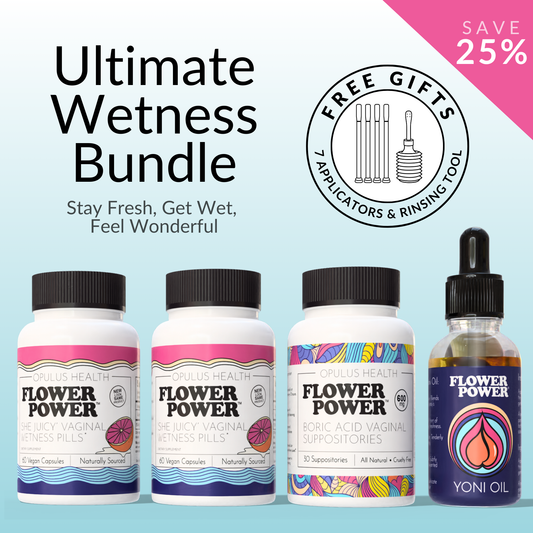Life After Menopause Isn’t the End of Intimacy
Menopause marks the end of menstrual cycles, but it doesn’t have to mark the end of pleasure, intimacy, or feeling at home in your own skin. Once periods stop for good and hormone levels settle, many women breathe a sigh of relief—goodbye hot flashes and unpredictable cycles! Yet, for some, a new set of challenges emerges.
Vaginal dryness, thinning tissues, itching, discomfort, and even pain during intimacy are some of the most common changes. They’re not just “minor annoyances”—they can affect confidence, self-image, and even relationships.
The empowering truth is this: your post-menopausal years can be juicy, vibrant, and full of intimacy if you know how to support your vaginal health. In fact, many women find this chapter to be one of the most liberating periods of their lives. Without the worries of pregnancy or fluctuating hormones, it’s a moment to reconnect with your body, prioritize self-care, and rediscover pleasure on your terms.
This guide goes beyond clichés. We’ll cover hydration, nutrition, movement, natural supplements, intimate rituals, and communication strategies. Together, these tips will help you thrive—not just survive—the post-menopause years.
Why Vaginal Health Matters More After Menopause
When estrogen levels decline, the vaginal walls lose elasticity, thickness, and natural lubrication. This condition, medically known as Genitourinary Syndrome of Menopause (GSM), impacts nearly half of post-menopausal women. And yet, so many suffer in silence.
Why does it matter? Because vaginal health doesn’t just influence intimacy. It also affects:
-
Urinary comfort: Low estrogen can make you more prone to urinary tract infections.
-
Daily wellbeing: Burning, itching, or micro-tears can make sitting, walking, or exercising uncomfortable.
-
Confidence and relationships: Many women withdraw from intimacy, feeling less connected to their partners.
Addressing these changes isn’t “vanity”—it’s essential health care. Your vagina deserves the same attention you’d give your skin, your heart, or your bones. Post-menopause vaginal health is about comfort, safety, and joy in your body.
Hydration from the Inside Out
Your body is made up of about 60% water, and your vaginal tissues rely on proper hydration to function. After menopause, when mucous membranes naturally produce less moisture, internal hydration becomes even more critical.
Why Hydration Matters for Vaginal Health
When you’re dehydrated, your body conserves water for vital organs, leaving non-essential tissues (like the vaginal lining) more vulnerable to dryness. Think of it as prioritizing survival over comfort. Staying hydrated ensures your vaginal tissues remain supple and resilient.
Smart Hydration Strategies
-
Sip consistently throughout the day rather than chugging water all at once. This helps your body absorb and distribute fluids better.
-
Infused water with lemon, cucumber, or berries makes drinking water enjoyable while adding antioxidants.
-
Hydrating foods like melons, celery, and leafy greens double as hydration plus nutrient boosts.
Drinks to Limit
Alcohol and caffeine are both diuretics, meaning they make your body lose water faster. If you love your morning coffee or evening glass of wine, balance them out with an extra glass of water.
Hydration may seem simple, but it’s the foundation for every other vaginal health strategy.
Nourishing Your Body with Vaginal-Friendly Foods
Nutrition directly influences the elasticity, circulation, and resilience of your vaginal tissues. Eating the right foods doesn’t just improve lubrication—it helps your entire reproductive system age gracefully.
Key Nutrients to Focus On
-
Omega-3 fatty acids: Found in fatty fish, flaxseeds, and walnuts, they improve circulation and reduce inflammation in vaginal tissues.
-
Vitamin E: Protects cell membranes, reduces dryness, and is a natural antioxidant. Sunflower seeds, almonds, and spinach are great sources.
-
Phytoestrogens: Plant-based compounds in soy, lentils, and flax mimic estrogen’s effects, supporting mucosal health without hormones.
-
Zinc and manganese: Crucial for tissue repair and natural lubrication. You’ll find them in whole grains, nuts, and legumes.
Creating Vaginal-Healthy Meals
-
Breakfast idea: Oatmeal topped with flaxseeds, walnuts, and fresh berries.
-
Lunch idea: Quinoa salad with lentils, spinach, and sunflower seeds.
-
Dinner idea: Salmon with roasted vegetables drizzled in olive oil.
Eating with vaginal health in mind is both delicious and empowering.
Pelvic Floor Power Moves
The pelvic floor supports your bladder, uterus, and vagina. After menopause, muscle tone can decrease, leading to weakened circulation and reduced sensation. Strengthening these muscles keeps blood flowing to the area and boosts both health and pleasure.
Beyond Basic Kegels
Kegels are effective, but variety maximizes results:
-
Bridge pose: Lie on your back, knees bent, lift your hips while squeezing your pelvic muscles. This engages your glutes and pelvic floor together.
-
Squats: Functional exercises that naturally strengthen the pelvic region.
-
Yoga stretches, like happy baby or child’s pose, promote flexibility and relaxation.
Think of pelvic exercises as a double investment: they reduce urinary leaks and enhance intimate sensation.
The Role of Natural Supplements
Not every woman wants hormone therapy. That’s why natural, plant-based supplements have become such a trusted option.
Flower Power®’s She Juicy is designed to support lubrication naturally, without estrogen or synthetic hormones. Its key ingredient, Slippery Elm Bark, contains mucilage and antioxidants that help restore the vaginal mucosa—the body’s natural lubricant system.
Unlike topical lubricants that only work in the moment, supplements nourish your body from within. Many women report that after a few weeks, they not only feel more comfortable daily but also more confident and spontaneous in intimate settings.
Consistency is key: like a fitness routine, the benefits grow stronger over time.
Self-Love Rituals for Vaginal Wellness
Caring for your vaginal health doesn’t have to feel clinical. In fact, making it part of your self-love routine can turn it into an act of empowerment.
Rituals to Try
-
Herbal baths: Add lavender, calendula, or chamomile to a warm soak. These herbs calm irritation and provide a sensory experience.
-
Oil massage: Natural oils like coconut or almond can gently moisturize external tissues and improve circulation.
-
Mindful touch: Exploring your own body without pressure helps reconnect you with pleasure and confidence.
When you shift the mindset from “fixing a problem” to “honoring your body,” vaginal care becomes a form of self-celebration.
Breaking the Silence: Conversations with Partners and Doctors
One of the most powerful steps in post-menopause health is breaking the silence. Vaginal discomfort is often stigmatized, but discussing it openly makes solutions easier to find.
Talking with Partners
Instead of framing vaginal dryness as a problem, invite your partner into the journey. Phrases like “I want to explore new ways to feel closer” open doors rather than close them.
Talking with Doctors
Be specific. Note when symptoms happen, how often, and how they affect your daily life. Doctors can’t help with vague statements, but they can offer tailored solutions when they have details.
Silence often prolongs discomfort. Speaking up brings relief and connection.
Intimacy After Menopause: Rekindling the Flame
Intimacy doesn’t end with menopause—it evolves. With the right approach, many women find it even more satisfying than before.
Practical Tips
-
Extend foreplay: More time means more natural lubrication and arousal.
-
Experiment with positions: Choose ones that reduce pressure and maximize comfort.
-
Use natural lubricants: Opt for paraben-free, water-based, or silicone-based lubricants for a safe, smooth experience.
And remember: intimacy isn’t just about penetration. Touch, massage, and exploration count just as much—and sometimes even more.
The Flower Power Philosophy: Zero Shame
At Flower Power®, we believe vaginal health should be celebrated, not hidden. Our mission is to empower women with natural, safe, and science-backed solutions while keeping the conversation open and stigma-free.
From She Juicy to boric acid suppositories, our products are:
-
Vegan and cruelty-free
-
Made in the USA with rigorous quality standards
-
Designed with honesty, because shame has no place in self-care
Your body deserves joy, pleasure, and care—always.
FAQs About Post-Menopause Vaginal Health
Is vaginal dryness after menopause permanent?
No. While it’s a common result of declining estrogen, dryness can be managed and improved. With consistent care—hydration, nutrition, pelvic exercises, and natural supplements—many women experience lasting relief. Medical options are also available if needed.
How long does it take to see results with supplements like She Juicy?
Most women notice improvements within a few weeks of daily use. Some feel changes as early as one week, while for others, it may take longer. The important factor is consistency: think of it as nourishing your body over time, not a quick fix.
Can post-menopause vaginal changes affect my relationship?
Yes, but they don’t have to negatively. For some couples, addressing vaginal health challenges actually deepens intimacy, because it requires communication, creativity, and teamwork. Rather than avoiding intimacy, view this as a chance to reinvent it.
What’s the difference between lubricants and supplements?
Lubricants act externally, providing temporary moisture during intimacy. Supplements, on the other hand, nourish your body internally, improving natural lubrication over time. Many women use both together for maximum comfort and confidence.
Are there risks with using natural vaginal health products?
Most plant-based, hormone-free products are safe for everyday use. However, everyone’s body is unique. If you’re managing chronic conditions, taking medications, or have sensitivities, consult your doctor first. This ensures your vaginal health routine complements your overall wellness.

